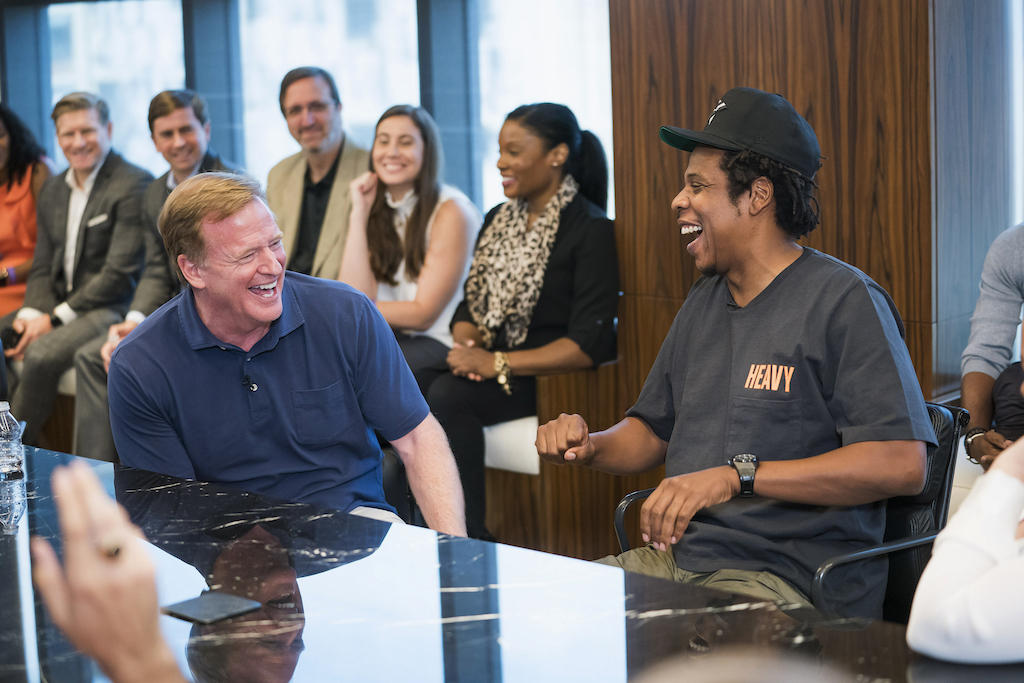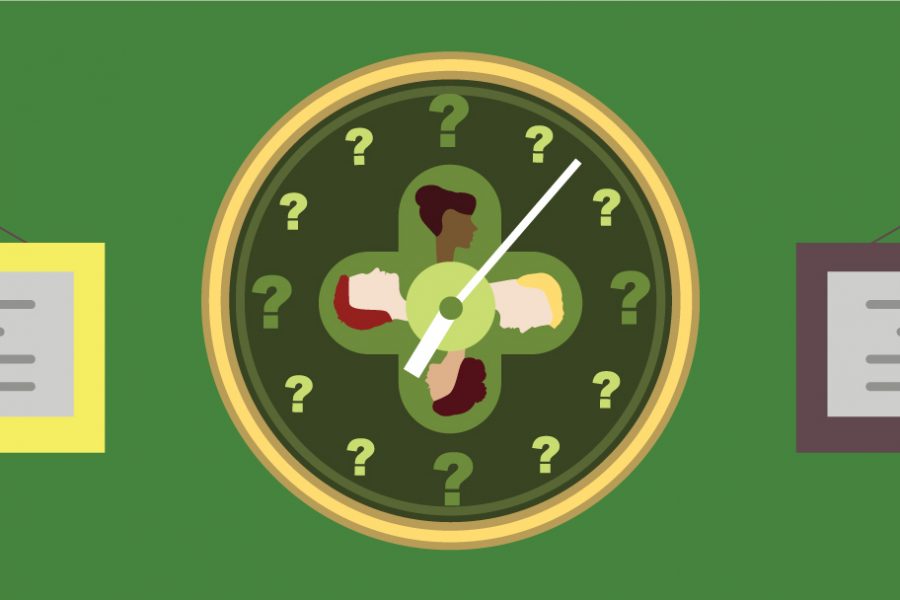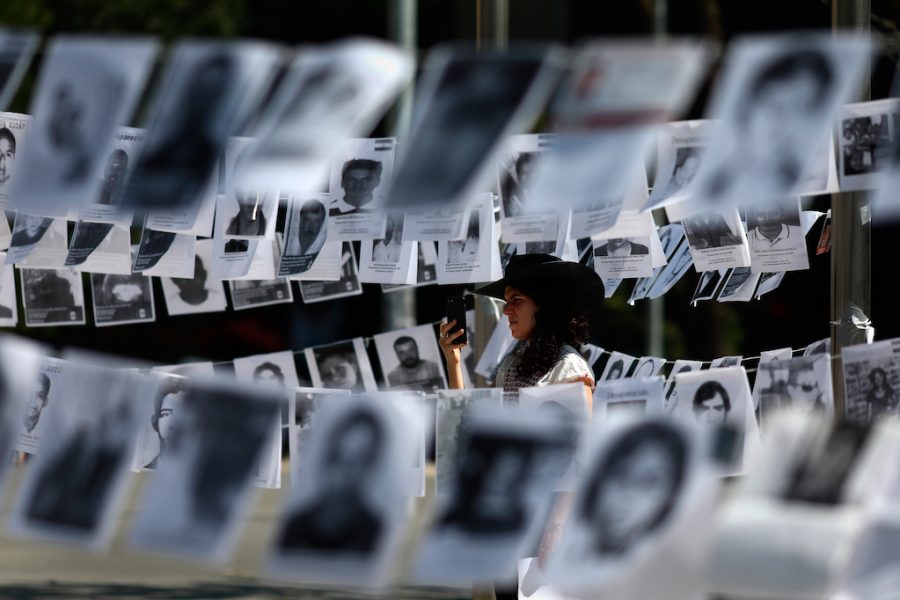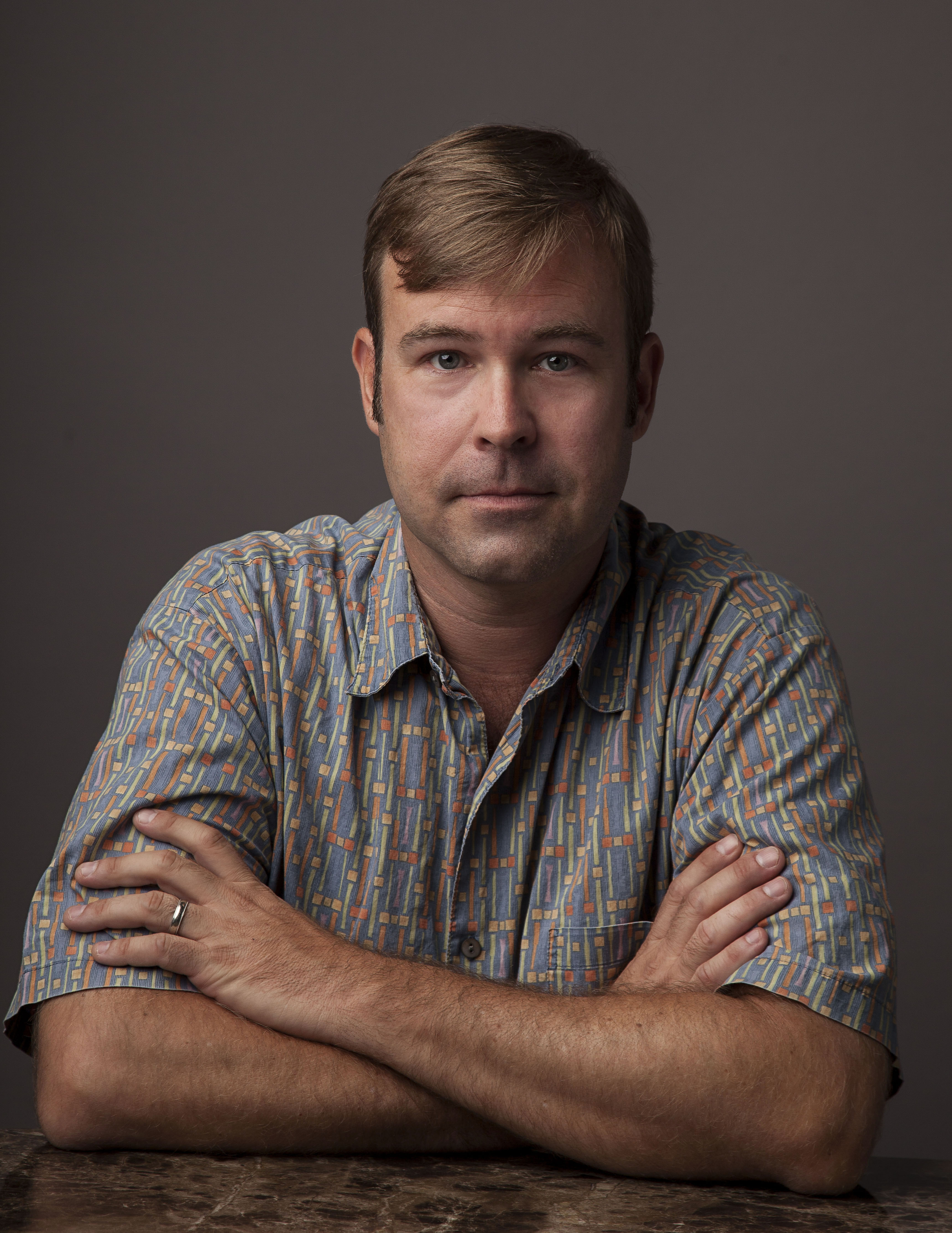The National Football League isn’t racist—just ask their new Black friend: Jay-Z.
Let’s be very clear about what happened. The NFL, with the help of an amicable Black entrepreneur in Jay-Z, is fooling their viewers and fans, parading business deals between members of the owner class as progress for communities of color. This sentiment was expressed in a Twitter post by Carolina Panthers’ Eric Reid: “Jay-Z doesn’t need the NFL’s help 2 address social injustices. It was a money move 4 him & his music business. The NFL gets 2 hide behind his black face 2 try to cover up blackballing Colin. #NeoColonialism”
The NFL did what the elite do best in times of crisis: public relations and philanthropy, which is much easier than engaging with a structural analysis of social issues like police violence and the effects of mass incarceration in Black communities. The NFL owners, displaying a severe lack of self-awareness, failed to assess their own investments, partnerships and social status as a compounding factor for the systemic oppression of communities of color.
The NFL and Jay-Z’s Roc Nation, in August, launched Inspire Change, a player-owner organization that will sell apparel and produce songs performed by players, with proceeds going to “education and economic empowerment, police and community relations, and criminal justice reform.” In addition, Roc Nation received an advisory role in organizing the Super Bowl halftime show, as well as organizing several free concerts.
At face value, this partnership seems like it was done in good faith, but critics, including the Reid, still point to the exclusion of former-NFL quarterback Colin Kaepernick as an unaddressed grievance. Kaepernick, who knelt during the national anthem to protest police brutalization of Black people, has been unsigned since 2016, and recently settled a lawsuit—along with Reid—against the NFL, alleging league owners colluded in their efforts to blacklist the two players.
Prior to the partnership, Jay-Z engaged in myriad philanthropic initiatives, ranging from posting bail for folks arrested for protesting police violence, to creating educational trusts for the children of a Black man slain by police. He agreed to this partnership with the NFL as it was mutually beneficial for the two parties.
The NFL received the positive public relations coverage using Jay-Z’s social capital to smooth things over with the non-activist faction of the Black community, while Jay-Z expands his business dealings and taps into the NFL’s vast viewership and fruitful network of elite owners. Most importantly, the NFL and the owners avoid a reckoning for the mishandling of the Kaepernick and subsequent protests, as well as their own role in the institutional oppression of communities of color.
A more egregious example of the NFL’s tone def initiatives is the OneTeam Collective, a coalition of venture capitalists and players that invest in start-ups and new businesses. On the website, it lists Black Rock as one of the founding partners of the collective. Who is Black Rock?
Black Rock is an investment group and a prominent shareholder of GEO Group and CoreCivic, two notorious private prisons that have been accused of inhumane treatment of prisoners and immigration detainees at Immigration Customs Enforcement facilities. Private prisons and the 1994 Crime Bill provided the capacity and resources to accelerate mass incarceration, leading to a 1600% increase in prisoners from 1990 to 2009, while assholes like Black Rock CEO Lary Fink amassed a wealth surpassing $1 billion.
Basic research could have led anyone to the same facts, however, the league does not care about the player it fooled into investing in a company that supports the inhumane treatment of imprisoned people of color. Even the largest, slimiest banks in the country are divesting $2.4 billion from all private prisons.
The NFL owners ooze with entitlement and cannot see past their own noses, let alone understand the plight of communities of color in this country, so it makes sense they turned to the newest, hippest member of the owner class, a person teetering a dual-consciousness as a Black man and billionaire, the latter being more important.






